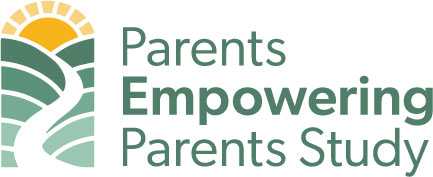Appendix B: Informed Consent Form – Impact Evaluation
Appx.B_Impact Evaluation Informed Consent_clean.docx
Replication of Recovery and Reunification Interventions for Families-Impact Study (R3-Impact)
Appendix B: Informed Consent Form – Impact Evaluation
OMB: 0970-0616

OMB Control No: 0970-0616
Expiration Date: 9/30/2026
Informed Consent for Participation
You are invited to take part in a study called the Parents Empowering Parents (PEP) Study. It is a study to see if a new service helps parents involved with child welfare and experiencing substance use to live their best lives and achieve their goals. A company called Abt Associates runs the study. The Administration for Children and Families in the U.S. Department of Health and Human Services is paying for it.
This sheet has information about the study and what it means to choose to be in the study. It is important that you read the whole sheet.
Your experience is important. Being in the study is a chance to join about 2,000 other parents across the country to help child welfare learn how to improve services for families in the future. Only one parent per household can participate in the study.
You can choose whether or not to be in the study. Your choice will not change anything about your child welfare case or the services or public benefits that you get. You can also decide to quit the study at any time. Leaving the study will not harm you in any way or affect your child welfare case or result in the loss of services.
The new service we are studying is called the <<local name of Parent Mentor Program>>. The goal of the service is to help parents live their best lives and to help families stay together. Parents work with a peer mentor who has also experienced substance use and the child welfare system. Working with a peer mentor is voluntary, and parents can choose to stop working with the peer mentor any time. Parents decide what they would like to work on, and the peer mentor provides tailored support. The peer mentor also helps parents navigate child welfare and other systems. Peer mentor support is available as long as a parent would like, and typically lasts for the length of involvement with child welfare.
What will I be asked to do if I choose to be in the study?
If you choose to be in the study, you will be assigned at random to one of two groups. One group will be offered the peer mentor service, <<local name of Parent Mentor Program>> plus other available services. The other group will be offered other available services but not the peer mentor service. We do this because space is limited in the <<local name of Parent Mentor Program>>. Having random groups is a fair way to make sure that everyone eligible for the service has an equal chance of getting it.
If you are in the group offered the peer mentor service at <<local name of Parent Mentor Program>>, you can choose to work with a peer mentor. Your caseworker will also refer you to other services as needed.
If you are in the other group, your caseworker will refer you to services as needed. You will not be offered the peer mentor service at <<local name of Parent Mentor Program>>. You could work with the peer mentor service in the future if you continue to have a Child Welfare caseworker and continue to be eligible. (If today’s date is before January 1, 2025, then you could work with the peer mentor service starting in October 2026. If today’s date is after January 1, 2025, then you could work with a peer mentor starting 1 year and 9 months from now.)
If you choose to be in the study, the research team will ask you to take part in the following study activities. Even if you aren’t in the <<local name of Parent Mentor Program>> group, your experiences are important and we will still ask you to take part in study activities.
Complete two surveys. The researchers will ask you to complete two 45-minute surveys — one now, and another one 15 months from now. You will receive a $40 visa gift card for your time completing each survey (or a total of $80 if you do both surveys). An interviewer will ask you the survey questions and you can choose to answer some questions on your own. The survey will ask you about your strengths, relationships, experiences, thoughts, and feelings. Some questions are personal or ask about things that may be hard to talk about like substance use, feeling sad or lonely, and experiences with child welfare, domestic violence, discrimination and mental health. You can skip any question or take a break whenever you like. We will keep your answers private and will not share them with your child welfare caseworker, your family members, or service providers.
Regularly update your contact information. We want to make sure that you have the chance to be part of all study activities. The researchers will ask you to complete a short 10-minute contact update form every three months (four times). We will ask you to check and update your contact information. We will also ask you to share and update contact information for up to three people who will know how to reach you in case we have trouble. You will receive $5 as a thank you for your time for doing each contact update, or up to $20 if you complete all four contact updates. The researchers may also use your name, date of birth, and last four digits of your social security number (SSN) to get updated contact information if they are unable to reach you.
Through 2030, the researchers may use your name, date of birth, last four digits of your SSN or other identification number to pull information about how you and your child(ren) are doing. This includes some information kept by <<Name of state or local DHS agency>> like your child welfare case status.
If you are assigned to the group offered a peer mentor, additional study activities include:
The researchers will use information kept by the <<local name of Parent Mentor Program>> like the dates you entered and exited the program to know how you engaged with the peer mentor service.
We may ask you to participate in a one-hour interview to share your experiences about what it’s like for you to be part of the <<name of Parent Mentor Program>>.
What are the possible benefits and risks if I agree to be in the study?
By being in the study, you can help build knowledge about services that are helpful for parents and could help improve services for families in the future. It will also help communities decide what services they offer families involved with child welfare. Being in the study also gives you the chance to work with a peer mentor. Parents will be assigned randomly, so not everyone in the study will be offered a peer mentor.
There is little risk for you to be part of this study. Some of the survey questions may be hard to talk about, and some of them may be upsetting or make you feel uncomfortable. You can skip any question and you can quit the study at any time.
The researchers will keep your personal information private. This means that we will not share your answers to the survey with your child welfare caseworker, your family members, or service providers. The only time that we may have to share information about you is if we find out that you or someone else could be hurt or in danger. We will try to make sure you or that person get help and are safe. This is uncommon but if this needed to happen it would follow a safety reporting process. Examples of this include: If you or another person are in physical danger or have a medical emergency, we may need to call 911. If you indicate immediate harm to yourself or plans to harm another person, we may need to contact the local mental health emergency line. If you tell us in detail about a child being maltreated or we observe child maltreatment, we are required to report concerns of child maltreatment to the study director, and, if needed, to the appropriate agency.
There is a small risk of a loss of privacy. However, the researchers have many safety measures to prevent this from happening.
Any computer files with your name will be stored on a secure network that is protected by a very high level of encryption and a password.
Your name will never be used in any public document or data file created as part of the study. When the researchers write a report, your information will be combined with information from the other 2,000 parents in the study.
To help us protect your privacy, we have a special certificate called a Certificate of Confidentiality. It says that we do not have to tell anyone who you are or that you are in the study. Even under a court order from a judge, we can say “no” to the request.
At the end of the study, the researchers are required to add data from this study to a national data archive that can be used by other verified researchers. Data added to the archive from this study will not identify you in a way.
Who should I contact if I have any questions about the study?
If you have any questions about the study, you can contact the researchers at 888-844-1512 (toll-free call) or by email at PEPstudy@abtassoc.com.
For questions about your rights as a study participant, contact the Abt Associates Institutional Review Board at 877-520-6835 (toll-free call) or by email at IRB@abtassoc.com.
Consent to Participate
Your participation in this study is voluntary. Your participation is effective from the date you choose to join the study until the end of the study. If you choose to quit the study, your participation will end at that time. You may choose to quit the study at any time without penalty. If you do quit the study, researchers will continue to use information collected during the time before you quit. To quit the study, please contact us at 888-844-1512 (toll-free call) or by email at PEPstudy@abtassoc.com.
FOR STAFF USE ONLY [document
in RESD]
☐ Informed consent was collected
verbally on DATE ___________.
☐ Individual did not agree
to be in the PEP Study on DATE__________. I,
[Enter R3
Coordinator or
Abt
Local Interviewer’s
name,
depending on who completes verbal consent],
certify that I read the consent document in its entirety to the
individual named above and they provided their verbal consent to
participate in the study. Staff
[typed name]:
___________________________ Date:___________

THE PAPERWORK REDUCTION ACT OF 1995 (Pub. L. 104-13): This collection of information is voluntary and will be used to understand programs that provide peer mentoring for parents involved in the child welfare system. Public reporting burden of the described voluntary collection of information is estimated to average 15 minutes per response, including the time for reviewing instructions, gathering, and maintaining the data needed, and reviewing the collection of information. An agency may not conduct or sponsor, and a person is not required to respond to a collection of information unless it displays a currently valid OMB control number. The OMB number and expiration date for this collection are OMB #: 0970-0616, Exp: 09/30/2026. Send comments regarding this burden estimate or any other aspect of this collection of information, including suggestions for reducing this burden to Kimberly Francis (Abt Associates) 617-520-2502.
| File Type | application/vnd.openxmlformats-officedocument.wordprocessingml.document |
| Author | Meredith Kelsey |
| File Modified | 0000-00-00 |
| File Created | 2024-07-22 |
© 2026 OMB.report | Privacy Policy